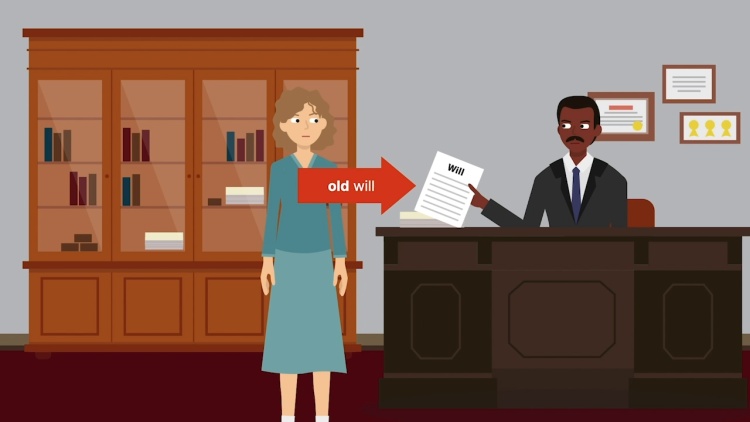Hotz v. Minyard
South Carolina Supreme Court
304 S.C. 225, 403 S.E.2d 634 (1991)
- Written by Mary Pfotenhauer, JD
Facts
Mr. Minyard had two children, Tommy and Judy, and owned two car dealerships. Attorney Dobson executed a will for Mr. Minyard, which would give the first dealership to Tommy, and would equally divide the remaining estate between Tommy and a trust for Judy. Mr. Minyard then had Dobson invalidate the first will, and execute a second will, which was identical to the first but which would also give the first dealership’s real estate to Tommy. Mr. Minyard told Dobson not to disclose the second will’s existence to Judy. In addition to representing Mr. Minyard, Dobson’s firm prepared Judy’s tax returns for many years and prepared Judy’s will for her, and Judy had previously consulted with Dobson’s firm about problems at one of the dealerships and with her brother Tommy. Judy discussed Mr. Minyard’s first will with Dobson. Based on her discussion with Dobson, Judy believed that she would inherit the second dealership under her father’s will, and would share equally with Tommy in their father’s estate. Dobson did not tell Judy that the first will had been revoked and Judy believed the first will was her father’s final will. Mr. Minyard later removed Judy and her children as beneficiaries of his will, after Judy questioned some of Tommy’s business decisions at the dealerships. In a meeting with Tommy and Dobson, Judy was told that she would be restored under Mr. Minyard’s will if Judy dropped her plans to file suit and dismissed her attorneys, which she did. Judy believed this meant she would inherit the second dealership under her father’s will, and would share equally with Tommy in their father’s estate. Judy (plaintiff) brought suit against Dobson (defendant) for breach of fiduciary duty, based on Dobson’s misrepresentation to her of the contents of Mr. Minyard’s first will. The trial court found that Dobson did not have a fiduciary duty to Judy because Dobson was acting as Judy’s father’s attorney when discussing the will with her, and granted summary judgment in favor of Dobson.
Rule of Law
Issue
Holding and Reasoning (Gregory, C.J.)
What to do next…
Here's why 911,000 law students have relied on our case briefs:
- Written by law professors and practitioners, not other law students. 47,100 briefs, keyed to 997 casebooks. Top-notch customer support.
- The right amount of information, includes the facts, issues, rule of law, holding and reasoning, and any concurrences and dissents.
- Access in your classes, works on your mobile and tablet. Massive library of related video lessons and high quality multiple-choice questions.
- Easy to use, uniform format for every case brief. Written in plain English, not in legalese. Our briefs summarize and simplify; they don’t just repeat the court’s language.





